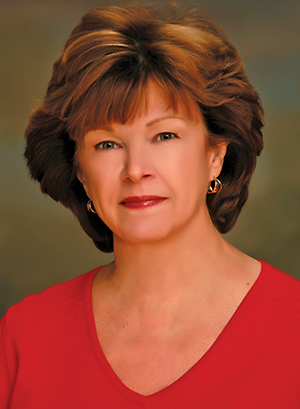February 8, 2016, has been called the largest single-day economic development success in Mississippi’s history. That was the day that Continental Tire the Americas and Edison Chouest Offshore’s TopShip separately announced plans to invest a cumulative $1.5 billion and create 3,500 jobs with an average salary of $40,000 in Hinds County and Gulfport, respectively.
But announcements are one thing, and success in achieving the announced plan is another. What is happening behind the scenes to help those two companies and others reach the promised land?
Mississippi Governor Phil Bryant appointed native Mississippian Glenn McCullough, Jr. to lead the Mississippi Development Authority (MDA) in June 2015. The former chairman of the Tennessee Valley Authority, a graduate of Mississippi State University, is also a former director of the Appalachian Regional Commission and former mayor of Tupelo. In other words, Mississippi is in his blood. He calls that day in February “an historic day for Mississippi, and evidence of Governor Bryant’s leadership in economic development. We play to win, and Mississippi wins with people.”
Though his MDA budget and payroll have been under siege, McCullough leads a team of nearly 250 men and women who, he says “a lot of times are working late at night to make sure companies like Continental Tire and Top Ship come to Mississippi.” Helping them do it is newly passed Mississippi Works Fund legislation allocating $50 million over the next decade for MDA, the Mississippi Community College Board and its network of 15 colleges to use in developing what they call “flexible, innovative and responsive” workforce training. Mississippi Manufacturers Association (MMA) staff helped draft the legislation, which also includes a reduction of the unemployment insurance tax minimum rate to zero percent from 0.2 percent. The MMA says the tax reduction resulting from this legislation will amount to over $16 per worker, or approximately $15 million in total, for 2016. (Another measure is initiating a 10-year phase-out of the franchise tax.)
“Mississippi Works is really the funding mechanism of our Workforce Innovation and Opportunity Act plan,” says McCullough, referencing the federal funding program signed into law in 2014. “Mississippi was the first state in the country to submit our plan to Washington, and it’s been very well received,” including a ranking as the No. 1 system in America by WalletHub in August 2015.
Also helping MDA accomplish its mission is a renewed focus on the state’s southern tier, which boasts such assets as Camp Shelby Joint Forces Training Center near Hattiesburg; Keesler Air Force Base in Biloxi and not one but two deepwater ports on the Gulf in Gulfport and Pascagoula. McCullough calls the latter “the shipyard of the future, where 70 percent of the ships that protect and defend freedom are built.” The new Edison Chouest Top Ship investment in Gulfport will create 1,000 jobs with a $68-million investment.
Impact from Social Legislation?
Among the state’s other brag points is the fact it has been the birthplace of more GRAMMY winners than any other state, a fact which drove the Los Angeles–based Recording Academy and the Cleveland Music Foundation to open a new GRAMMY Museum in March 2016 on the campus of Delta State University, home to the Delta Music Institute.
One month later, however, the Museum was among many organizations disturbed by Governor Bryant’s signing into law of HB 1523, a religious objections measure filed in summer 2015 after the federal legalization of gay marriage. The Protecting Freedom of Conscience from Government Discrimination law was set to become law July 1.
“While we hope Governor Phil Bryant and the Mississippi state legislature will hear the concerns of the people of Mississippi, and all across the nation, and repeal this bill,” read an official statement, “the Museum will continue to ensure all visitors and music fans feel welcome through programming, workshops, and exhibits that convey music as the universal language — non-discriminatory and all-inclusive.”
The MMA was equally concerned just before Bryant signed the measure.

“Many of our member companies, including some of Mississippi’s largest employers such as Nissan, Toyota, and Ingalls Shipbuilding, have issued statements in opposition to this legislation,” an MMA release stated on April 4. “HB 1523 is in direct opposition to many of our member industry’s policies and beliefs regarding diversity and inclusivity. It is also troubling that HB 1523 goes further than similar legislation recently vetoed by the Governor of Georgia, as it allows not only IRS-deemed religious organizations but also the private sector and government to decline goods and services to persons whose lifestyle they find objectionable. We have seen the negative attention that Georgia and North Carolina have received on this issue and have now seen the attention shift towards Mississippi. MMA fears that future economic development opportunities will be jeopardized if HB 1523 is signed into law.”
A letter signed by eight major corporate leaders protested the signing of the bill. IBM and Microsoft executives also expressed their displeasure. According to the Jackson Free Press, Jackson-based developer and architect Roy Decker said an investor pulled out of a pending project because of the bill. Tourism and lodging associations have reported significant cancellations, and actress Sharon Stone pulled an $800,000 film project out of the state. But MDA’s McCullough says, “To my knowledge, there have not been any negative repercussions in economic development from 1523. MDA’s mission is community and economic development. We stay focused on building the advantages Mississippi can offer business and industry.”
Sue Stedman, head of Crye-Leike Stedman Realtors in Natchez and the board chair for newly expanded bi-state economic development agency Natchez, Inc., offers a perspective from the southwest corner of the state, where antebellum mansion and Mississippi River tourism hold big sway. “Natchez is a unique place,” she says. “We’ve always been accused of being different as far as the state goes, which in this case maybe has served us well.”
The area was short-listed for the Chinese-backed Sun Paper project that landed in Arkansas this spring, and had an active project list of 15 this spring.
“We are certainly open arms to any kind of economic prospects, and we’re going to try to conduct ourselves in such a fashion that we don’t close anybody out. It’s been a non-issue for us, and we hope it stays that way.”
In late June, just before the law was to take effect, a federal district court judge issued a permanent injunction, meaning one part of the law could not continue: Circuit clerks are not allowed to recuse themselves from issuing marriage licenses to same-sex couples. Further legal challenges are expected.
The State, Not the River
Sebastian Eich, the co-founder of newly launched consultancy NAVIGO in Atlanta, is a longtime site selection expert with special expertise in guiding European companies toward smart landings in North America, and most recently represented the State of Mississippi in Germany since 2013. “I did that for two and a half years, and we agreed that it would be time for Mississippi to walk on their own and have bigger offices in Europe rather than me traveling there every eight weeks,” he says in an interview. He praises the way MDA and its partners maintained secrecy and confidentiality leading up to the big February announcements.
Asked for his own SWOT analysis, Eich says there are still some obstacles in the way of future projects.
“In the big site selection world, you always say incentives don’t play a role, but when it comes down to two ideal locations, it’s the business case you’re looking at,” he says. “The legislature doesn’t allow property tax abatements for more than 10 years. I’ve had projects that said, ‘Sorry, Mississippi, our investment is so large, the property taxes paid during startup blow the business case.’ We’re talking millions of dollars. That’s one of the big hindrances, and there are grassroots efforts toward changing that. The second hindrance I see is the image Mississippi has. I’m mostly speaking from a German perspective — everyone knows it’s a river, but nobody knows it’s a state.”
That said, workforce tips the scale favorably, says Eich, citing the successful attraction of a manufacturing operation to Tupelo from German firm Grammer AG, a maker of upholstery for tractor, truck and railway car seats. “Tupelo was attractive to them because of the workforce,” he says. “It has this old furniture-making mindset. That’s a great advantage to Mississippi that they still have that type of knowledge.”
The knowledge base proved so persuasive that Grammer moved its headquarters to Tupelo from Madison. Eich says the same workforce strength can be seen in Tunica too, and proved attractive for such firms as piping manufacturer Wilhelm Schulz and Feuer Powertrain, which opened its first facility outside Germany there in November 2015. It says something about Mississippi’s momentum, Eich says, that Tunica, in America’s poorest county in the 1990s, landed those two “very complicated projects” with high capex and a requirement for a highly skilled workforce.
“Feuer makes highly complicated parts” and is an extremely technical company, says Eich. “They had no problem finding a workforce, and the selling point for that was always that they have a lot of agricultural folks who have a hands-on mindset. They are skilled and crafty, like to get their hands on things and solve them.”

That’s certainly the case in various parts of the state, including at NASA’s John C. Stennis Space Center down south, one of a number of assets Eich says aren’t fully known or appreciated globally.
“No question, it’s one of the greatest assets that’s not known globally — it’s like a huge brain cell on the Gulf Coast,” says Eich, putting the Polymer Institute at the University of Southern Mississippi in Hattiesburg in the same class. “The universities are great in research and working with industry. That’s definitely not known to industry in Europe.”
Starkville is part of the Golden Triangle (also encompassing Columbus and West Point), and home to the Center for Automotive Research at Mississippi State University. That school last year was named the anchor for the FAA’s Center of Excellence for Unmanned Aircraft Systems (COE UAS). The Mississippi State-led Alliance for System Safety of UAS through Research Excellence (ASSURE) is operating the new COE. While research will take place at member universities throughout the US and globally, the center’s work will be concentrated at Stennis Space Center in Hancock County to take advantage of airspace over the Gulf of Mexico, in the Mississippi Delta to conduct unmanned precision agriculture research, and around MSU’s Raspet Flight Research Lab in Starkville.
“Governor Bryant reminds people that man will one day visit Mars, but to get to Mars, they will first visit Stennis Space Center,” says MDA’s Glenn McCullough. “It’s a unique advantage,” he says, and part of an overall aerospace investment level in the state that is becoming better known by the day. “Almost every commercial airliner in operation around the world today has at least one part manufactured in Mississippi,” he says.
That was a message he planned to deliver to companies at the Farnborough Air Show this summer, as well as to companies in such places as China. “We’re quite optimistic we’ll be doing business with investors from China very soon. We see China as a growth market for direct investment into Mississippi.” Trade missions the rest of the year are focused on the South Pacific and Asian regions, with a likely return trip to Europe — a journey that will continue to educate those Europeans Eich says don’t know Mississippi as well as they should. “We are reviewing proposals for representation in Europe with some emphasis in Germany, where we’re seeing tremendous interest,” says McCullough.
It’s all part of a future he sees as brighter than the summer sun glinting off the Gulf.
“We’re proud of the heritage of our state,” McCullough says, “but honestly we believe Mississippi’s best days lie ahead.”

